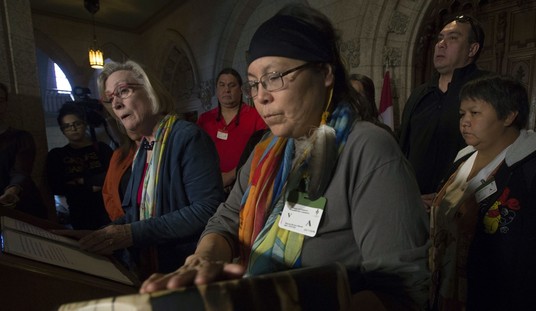What are we to make of the increase in violent deaths in Iraq during June and July? Is it a sign of a long-term upsurge in violence since the U.S. troop withdrawal? Who are the culprits? These are all pertinent questions to ask.
It should be noted that violence in Iraq often follows cyclical patterns. Insurgent groups normally step up their operations as summer begins, and also around the times of religious festivals, when pilgrims — frequently traveling on foot — are exposed to attacks. In June, there were waves of bomb attacks targeting Shi’a pilgrims who were commemorating the death of Moussa al-Kadhim, who was the great-grandson of Muhammad. One should be careful in extrapolating from short-term trends to warn of growing sectarian tensions and a return to civil war in the near future.
Today, the insurgent groups responsible for attacks on civilians and a large number of attacks on government officials are entirely Sunni, since the Shi’a militant groups like the Kataib Hizbullah have disbanded following the pullout of U.S. forces.
The two main organizations are al-Qaeda in Iraq (AQI), which is now virtually an entirely native force, and the Ba’athist Naqshibandia. The latter is led by Izzat Ibrahim ad-Douri, who is still at large and most recently appeared in April in a video denouncing the Assad regime and complaining of an Iranian-American-Israeli conspiracy taking over Iraq.
At present, there is no real evidence to suggest that either group is gaining new recruits from Sunni Arabs on the basis of frustration with problems in the political process. If such an assertion were true, insurgents carrying out the attacks would surely make their specific grievances clear (e.g., perhaps demanding from Nouri al-Maliki’s government in Baghdad an amnesty for Vice President Tariq al-Hashemi).
However, there are two ways in which one can link the current state of Iraqi politics with violence. First, as analyst Joel Wing of Musings on Iraq suggested to me in a discussion on this topic, the political impasse can induce frustration in local Sunni Arab populations such that the insurgents have an easier environment in which to conduct operations.
Hence, said locals might refuse to disclose the whereabouts of insurgents to the security forces, presumably due to a “serves them right” attitude regarding the government and security forces. In turn, the tendency towards heavy-handedness on the part of the Iraqi army and police — which still suffer from major deficiencies in intelligence gathering on militant activities — could only exacerbate such a problem.
Second, one should not discount the violence between political factions that accounts for some of the attacks on government officials. Observers have noted that the nature of such operations — for instance, assassinations by means of firearms with silencers — points to a picture of meticulous planning and skill at odds with the simpler car bombs and suicide bombers of the Naqshibandia and AQI. It is hardly implausible that political factions have their own hitmen they can deploy against each other in times of political crisis.
Nevertheless, as Wing also told me, it is important not to exaggerate the extent of this phenomenon. Indeed, violence between political factions probably accounts for only a minor proportion of these attacks.
In fact, more overt examples of violence between political factions (e.g. rallying supporters to attack the offices of a rival party) are also fairly rare. The most recent notable case actually took place in the Kurdistan area in early December, between Barzani’s Kurdistan Democratic Party — part of the ruling coalition of the Kurdistan Regional Government — and the opposition Kurdistan Islamic Union. The clashes arose after supporters of the latter attacked liquor stores, and other businesses owned by Assyrians and Yezidis in the town of Zakho.
Finally, it should be stressed that in general, the reduction of AQI’s influence since the advent of the Sons of Iraq movement has been exaggerated. Though the group’s power in central Iraq and Anbar is indeed at a shadow of its former self, AQI has always maintained a strong presence in Mosul. There it behaves like the Mafia, extorting money from businesses and other residents — this has been going on for years and gives AQI ample financial means to carry out attacks.
A case-in-point is the murder of the Chaldean archbishop of Mosul in January or February 2008, after churches in the city stopped paying jizya — a traditional extortionist poll-tax imposed on non-Muslims living under Islamic law — to AQI. It should be noted that this incident took place even as AQI was suffering major setbacks further south.
Violence has generally stabilized at levels that still make Iraq a very dangerous place, which in turn creates numerous problems – one such problem is deterred foreign investment, which impedes reconstruction efforts and the liberalization of the top-down bureaucracy.
The political impasse, heavy-handedness of the security forces, and AQI strength in Mosul mean that overall violence is unlikely to decrease substantially over the coming years, even as we can put aside media sensationalism that tends to look only at short-term trends with uninformed talk of a return to a full-blown sectarian civil war as we saw in 2006.









Join the conversation as a VIP Member